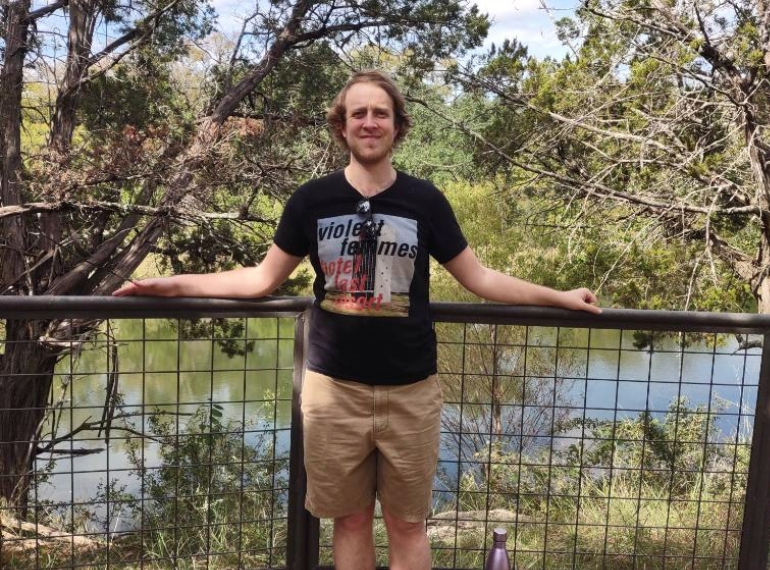Sebastian's Story

Stroke
Sebastian Whitney, a 27-year-old security systems salesman and self-proclaimed gamer, found himself facing a life-changing event during a vacation. While showering, a sudden splitting headache struck, leaving him unresponsive. Rushed to a Corpus Christi hospital, doctors revealed that an aneurysm had caused a stroke. Thanks to a successful endovascular coiling procedure (to reduce the flow of blood into the aneurysm) Sebastian's life was saved.
However, on the mend, Sebastian now had physical and cognitive issues. He was experiencing visual “field cuts” in both eyes – meaning a hole or blank spot in his vision on both sides. Sebastian was also having trouble with fine motor skills in his left hand. “On occasion my left hand will act on its own accord,” he said. He was also having difficulty thinking through problems.
When Sebastian discharged from the hospital he had new goals. “Driving is a huge goal for me,” he said. “Returning to work is a goal for me as well.” Sebastian decided to attend Baylor Scott & White Institute for Rehabilitation (BSWIR) – Lakeway’s Day Neuro Program, a comprehensive outpatient program that provides focused rehabilitation for people who have had a stroke, brain injury or other neurological disorders. “BSWIR – Lakeway was recommended to me and the location was close to my home,” Sebastian said.
Collaborating with his therapy team at BSWIR – Lakeway, Sebastian devised a personalized treatment plan. The team focused on addressing his visual field cuts, fine motor skill challenges and daily self-care activities. “We are constantly working on my vision and fine motor skills with my left hand. They also recommended many resources to help me on my way toward driving again,” he said.
One exercise in particular stood out to Sebastian. When he began rehabilitation with the Day Neuro Program he had been able to walk, talk and juggle. His therapists combined the use of a Bosu Ball, a hemispherical rubber ball used to increase strength and balance, with his ability to juggle. While balancing on the ball and juggling, Sebastian was enhancing his fine motor skills and strengthening his cognitive abilities by focusing on two tasks at one time.
His therapists also set him the task of cooking meals in the facility’s kitchen. Cooking a full meal with no help is where Sebastian said he felt he had turned a corner in his rehabilitation. He also attributes some of his success to a few new friends. “Being able to see therapy horses and the therapy dog, Jasper, were big highlights of my stay,” he said.
Sebastian also enjoyed the support and assistance of his family and his girlfriend of seven years. “My girlfriend helped out with so many things at home. She also drove me to the facility every morning. My mother attended all of my appointments with me and picks me up from the facility every day,” he said.
Rehabilitation often teaches people lessons they may not have learned otherwise. “I learned to have patience with myself if things don’t click immediately. Always get back up and try again. I also learned to never judge a book by its cover because you never know what someone is going through,” he said.
“While frustrating at times, my time here has been extremely helpful and regenerative,” Sebastian said about the Lakeway Day Neuro Program. “My therapy team is excellent and I would not trade them for the world. They have worked with me at the pace I need through all of the struggles and successes.”
Sebastian had advice to give to those who find themselves in a similar situation. “Trust in your therapists. Do your home exercise programs and try your hardest not to get frustrated with your loved ones. Take it slow, easy and consistent and you will amaze yourself at what you can accomplish.”